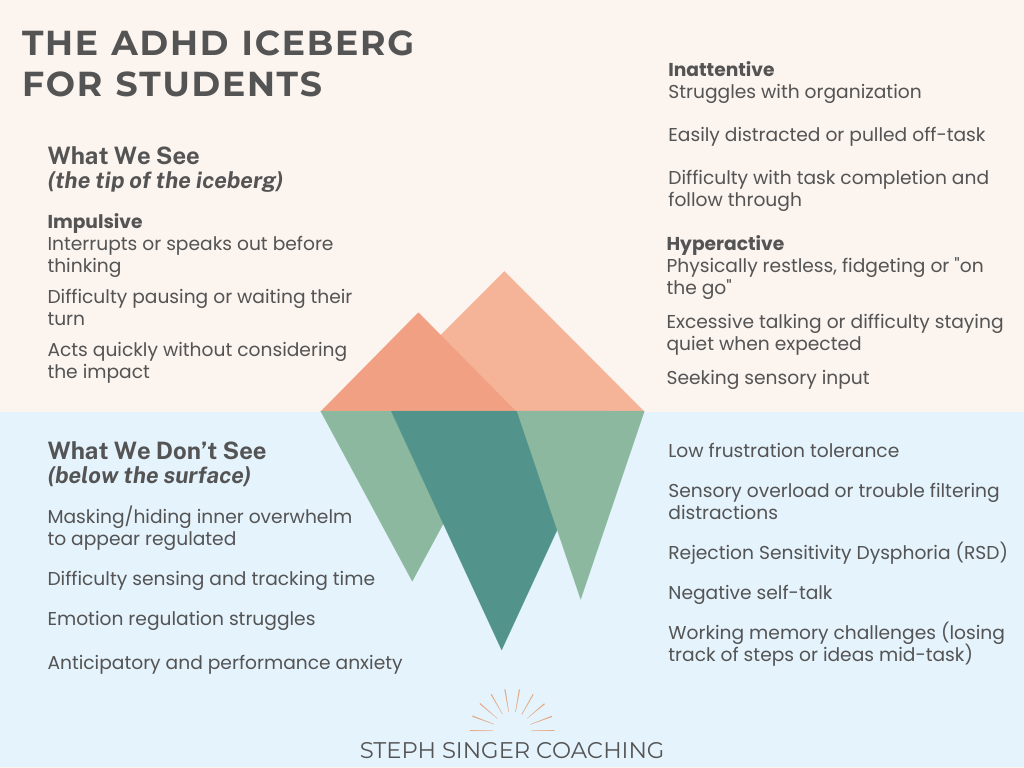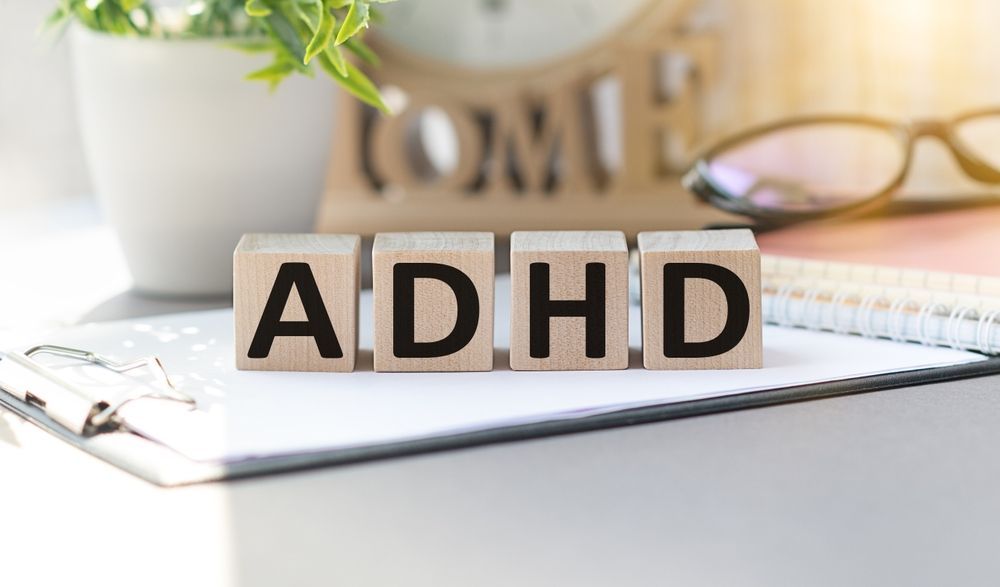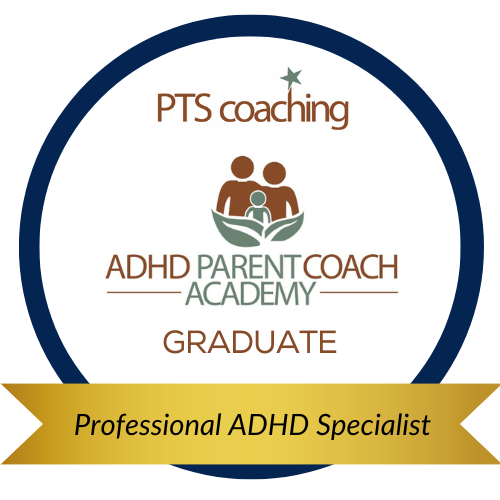The ADHD Iceberg For Students: Helping Us See the Full Picture
Stephanie Singer | August 8, 2025

With a new school year just around the corner, many of us are thinking about what lies ahead for our kids – especially if our child has faced ADHD or executive function challenges in the past. As widely noted by Dr. Russell Barkley, “ADHD is not a disorder of knowing what to do, it’s a disorder of doing what you know.”
This captures a core truth: kids with ADHD often understand what’s expected, but struggle to consistently act on that knowledge due to self-regulation challenges. How this plays out looks different for every child – shaped by their unique wiring, environment, and experiences.
The ADHD Iceberg for Students is a visual tool that helps explain how ADHD often shows up in the classroom – highlighting the difference between surface behaviors
(the tip of the iceberg), like distractibility or impulsivity, and the underlying factors that drive them, such as executive function challenges, internal stress, or the invisible effort it takes to keep up. Without this context, these behaviors can easily be misunderstood and labeled as defiant or unmotivated, rather than recognized as signs that a student needs support.
Unseen Struggles Many Students Face
Many parents, teachers, and other caregivers simply haven’t had access to clear information about these cognitive and emotional challenges – difficulties that impact learning, behavior, and overall well-being.
Though not a complete list, common underlying or "below the surface" factors include:
- Poor time awareness
- Emotional regulation difficulties
- Working memory challenges (e.g., losing steps or ideas mid-task)
- Trouble starting or switching between tasks
- Impulse control struggles
- Low frustration tolerance
- Sensory sensitivities or difficulty filtering distractions
- Rejection Sensitivity (RSD)
- Negative self-talk or low self-esteem
Bringing This Perspective Into the Classroom
Whether you're preparing for a 504 Plan meeting or simply connecting with your child’s teacher, this insight can help guide more thoughtful, collaborative conversations – shifting the focus away from judgement-based labels and toward greater compassion and understanding of your child’s true strengths and needs.
It can also support you and your child's teachers in identifying appropriate accommodations. You can download my parent support sheet – ADHD-Related School Accommodations – for a comprehensive list of research-backed accommodations you may find helpful (e.g., extra time for assignments or transitions, visual schedules and instructions, movement breaks, or sensory supports).
By looking beneath the surface of our kids' behaviors, we can better understand the
“why” – and respond in ways that build skills, confidence, and trust.
The ADHD Iceberg for Students is one way to shift the conversation from managing behavior to supporting the whole child, cultivating a responsive learning environment that benefits both children and the adults working with them.







